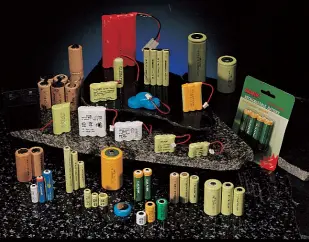Characteristics of Li-ion, Li-polymer, NiMH Battery Chemistry
Lithium-ion Battery Packs
Lithium ion (Li-ion) battery packs are a popular power source for handheld devices due to their small size and light weight. Li-ion battery packs have no “memory effect” (also known as voltage depression) , common in older cell chemistries. With a higher energy density than Nickel-based battery packs and a low self discharge rate, Li-ion battery packs have revolutionized the design of portable devices that were previously restricted by power source size, weight, and run-time limitations. Read more about Lithium-ion batteries
Lithium polymer battery packs
The lithium-polymer battery pack differentiates itself from conventional battery systems in the type of electrolyte used. The original design, dating back to the 1970s, uses a dry solid polymer electrolyte. This electrolyte resembles a plastic-like film that does not conduct electricity but allows ions exchange (electrically charged atoms or groups of atoms). The polymer electrolyte replaces the traditional porous separator, which is soaked with electrolyte. Read more about Lithium-polymer batteries
Nickel-metal Battery Packs
Rechargeable Nickel Metal Hydride (NiMH) batteries offer many advantages, especially in high-drain portable device applications. NiMH batteries are a complex mix of nonhazardous chemicals and materials providing storable energy in a convenient package. The internal materials of a NiMH battery efficiently absorb, release, and transport hydrogen to and from its electrodes. Read more about NiMH batteries
Custom design
GlobTek battery packs can be specifically matched to a battery charger designed for each customer application. We optimize both battery pack and charger during the design phase to provide the best possible performance. Read more about battery chargers
